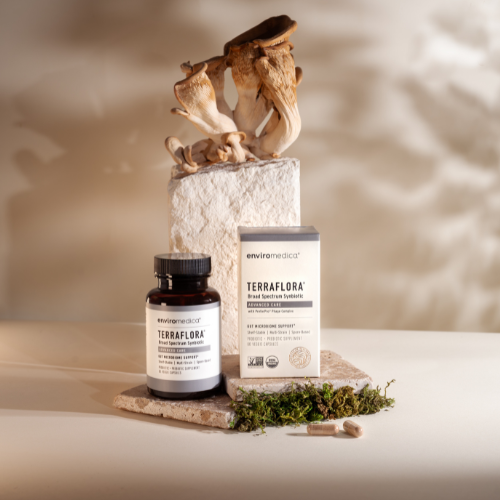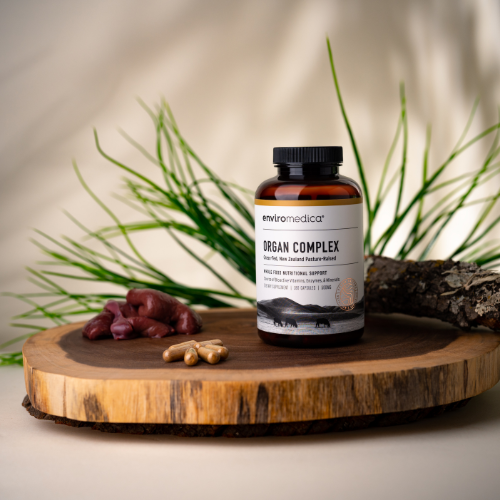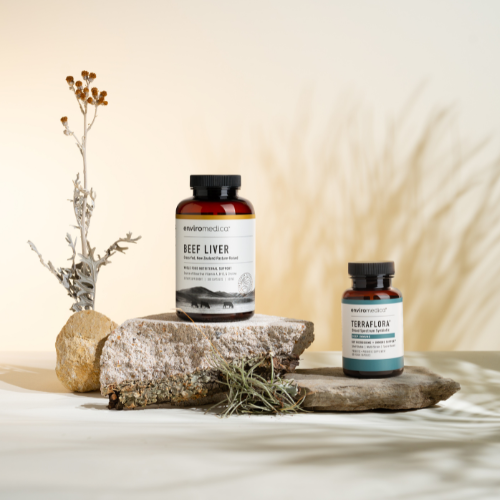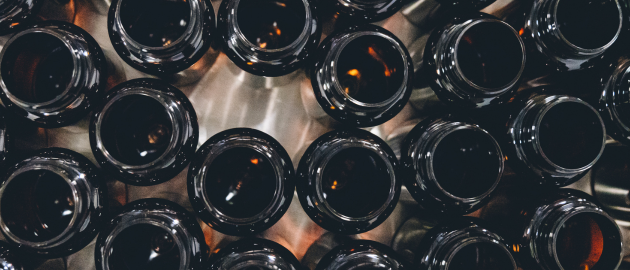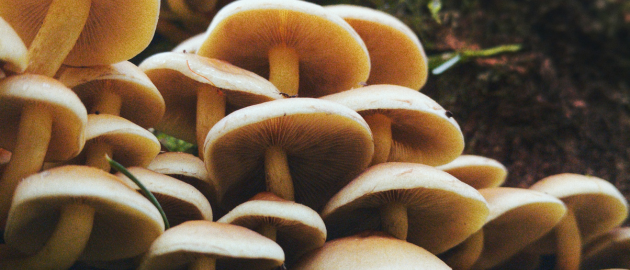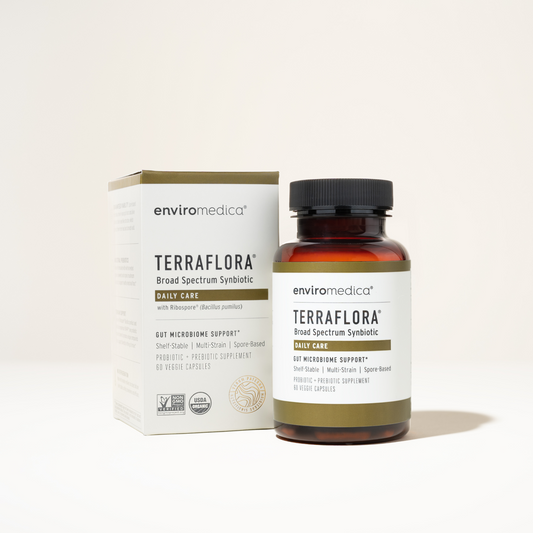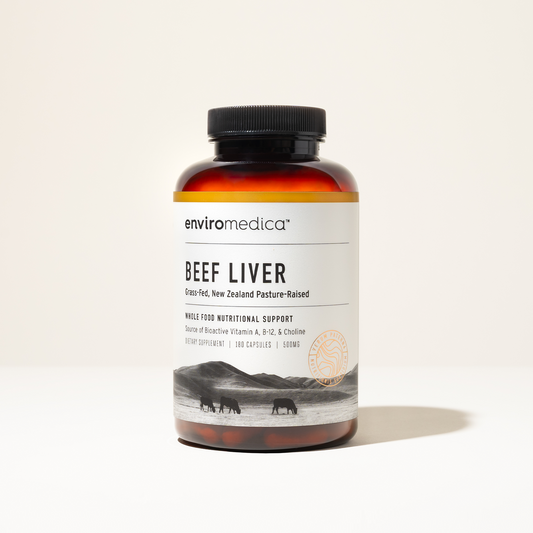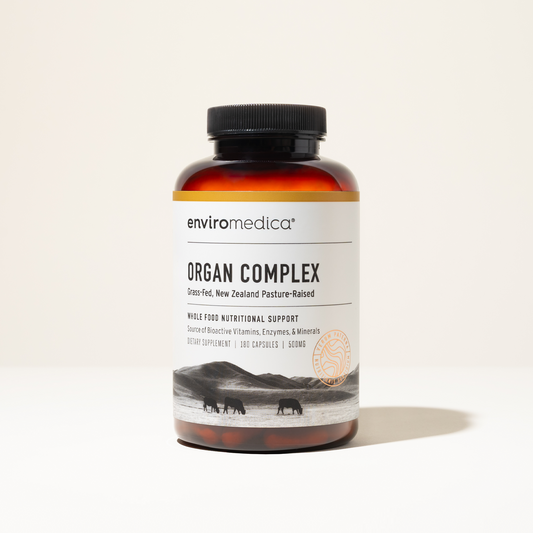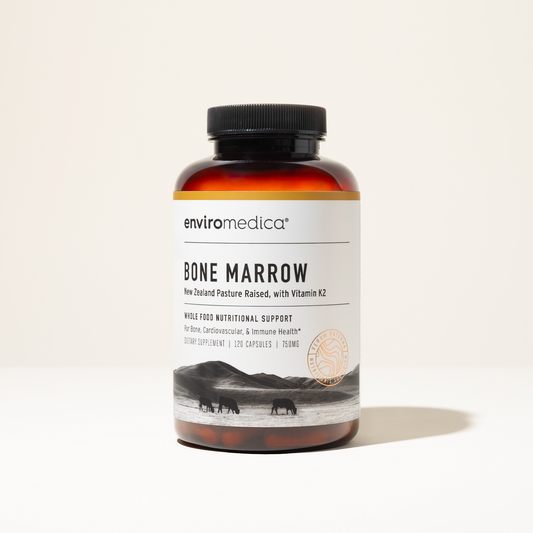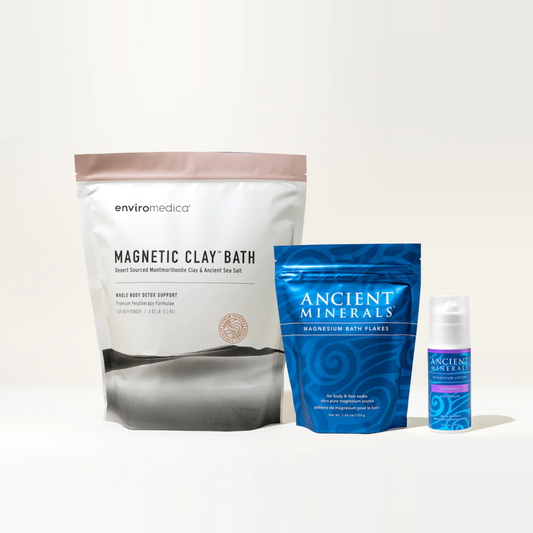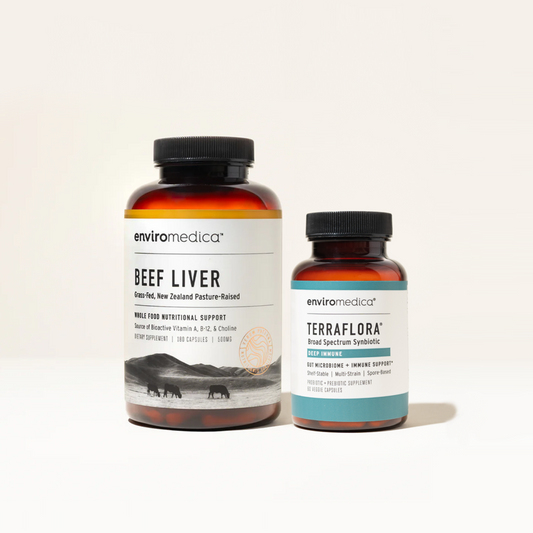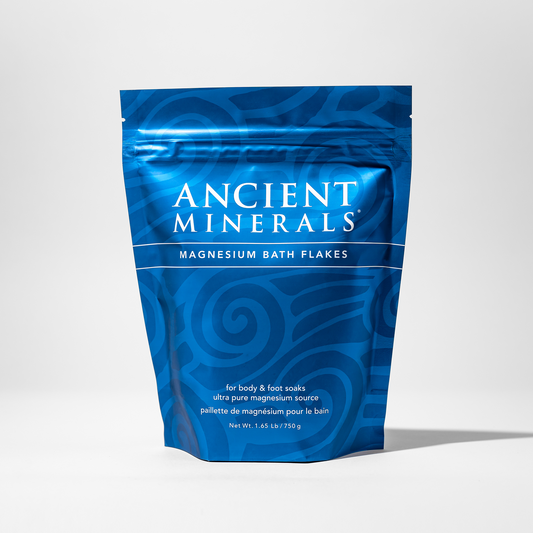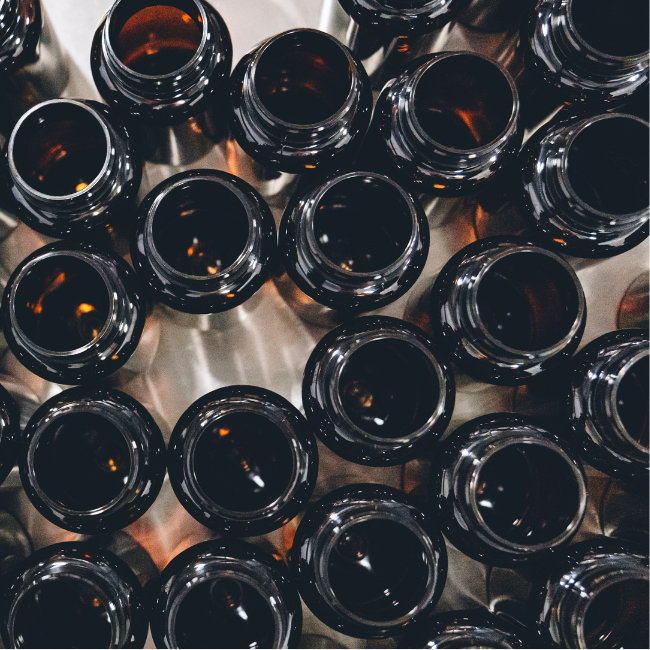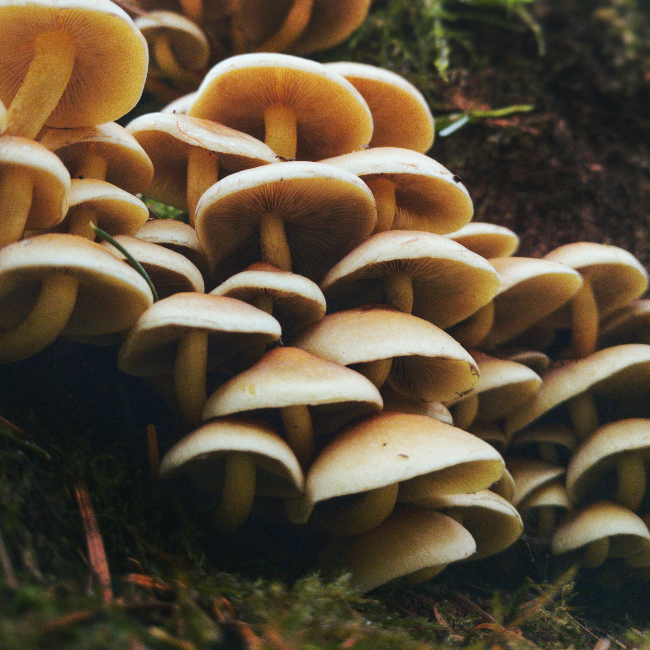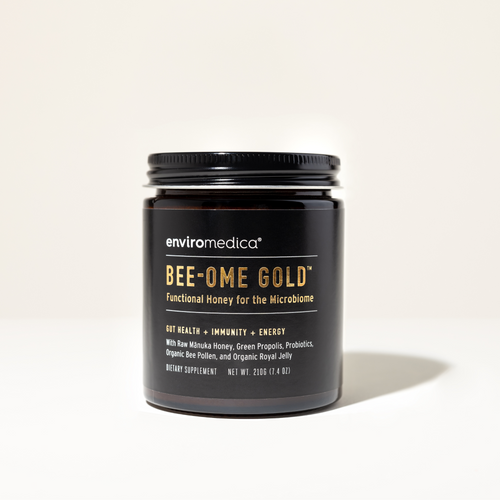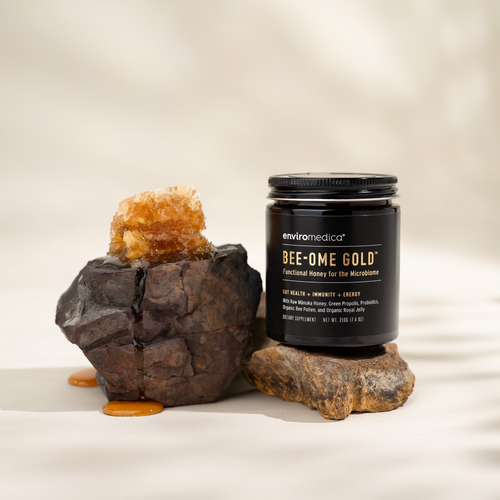Reconnecting with ancient ecosystems
In the world of ancestral health, we’re reminded that our modern bodies are deeply rooted in the practices of our ancestors. They thrived in environments teeming with natural diversity—microbial and fungal alike. Yet, in our sanitized, fast-paced modern world, we often overlook the crucial role of the mycobiome, the fungal community within our microbiome.
The forgotten fungi of gut health
While much attention is given to gut bacteria, fungi have long been a silent partner in human health. Research highlights the mycobiome’s role in maintaining gut balance and modulating immune responses.1 These microorganisms help maintain balance in our digestive systems, support nutrient absorption, and bolster our immune defenses. An imbalanced mycobiome, often caused by processed foods, environmental toxins, or overuse of antifungals, can lead to inflammation, digestive discomfort, and systemic health challenges.2
Harmony through symbiosis
An ancestral diet—rich in unprocessed, whole foods—naturally supports the symbiotic relationship between fungi and bacteria in the gut. Studies show that diverse diets, akin to ancestral eating patterns, promote microbiome diversity and health.3 Our ancestors intuitively consumed wild, nutrient-dense foods, honey, and fermented products, all of which contributed to a healthy microbiome and mycobiome. By embracing this approach today, we can re-establish the balance our bodies crave, as supported by research linking lifestyle changes to improved microbiome health.4
Functional honey: Bee-Ome Gold™
At the intersection of ancient wisdom and modern science is Bee-Ome Gold™, a functional honey crafted to nourish your microbiome and mycobiome. Infused with prebiotic properties, this ancestral superfood helps restore balance in the gut’s microbial ecosystem, supporting a vibrant and healthy mycobiome. Evidence suggests that honey’s prebiotic components encourage the growth of beneficial gut microbes.5
Bee-Ome Gold™ is enriched with bee pollen, a nutrient powerhouse known to support gut health and immune function; green propolis, valued for its antimicrobial and antifungal properties; royal jelly, which contains bioactive compounds that may enhance resilience and overall wellness; and spore-based probiotics, specifically designed to survive the harsh gut environment and foster a balanced microbial community. Much like the harmonious relationship between bees and nature, Bee-Ome Gold™ reflects our symbiotic relationship with the natural world.
The path forward
Supporting your mycobiome isn’t about adding complexity to your health routine. It’s about returning to simplicity: eating nutrient-dense, unprocessed foods, managing stress, and integrating functional products like Bee-Ome Gold™ into your life. By doing so, you’re not just feeding your body—you’re nourishing a deeply interconnected system rooted in our ancestral past. Let’s reconnect with nature’s wisdom and rediscover the power of a healthy mycobiome. After all, thriving isn’t just about living; it’s about living in harmony with the natural systems that have sustained us for millennia.
References
-
1. Underhill, D. M., & Iliev, I. D. (2014)
The mycobiome: Interactions between commensal fungi and the host immune system. Nature Reviews Immunology, 14(6), 405-416.
https://doi.org/10.1038/nri3684 -
2. Huffnagle, G. B., & Noverr, M. C. (2013).
The emerging world of the fungal microbiome. Trends in Microbiology, 21(7), 334-341.
https://doi.org/10.1016/j.tim.2013.04.004 -
3. De Filippo, C., Cavalieri, D., Di Paola, M., Ramazzotti, M., Poullet, J. B., Massart, S., ... & Lionetti, P. (2010).
Impact of diet in shaping gut microbiota revealed by a comparative study in children from Europe and rural Africa. Proceedings of the National Academy of Sciences, 107(33), 14691-14696.
https://doi.org/10.1073/pnas.1005963107 -
4. Turnbaugh, P. J., Ridaura, V. K., Faith, J. J., Rey, F. E., Knight, R., & Gordon, J. I. (2009).
The effect of diet on the human gut microbiome: A metagenomic analysis in humanized gnotobiotic mice. Science Translational Medicine, 1(6), 6ra14.
https://doi.org/10.1126/scitranslmed.3000322 -
5. Shahram, R., Bahadoran, Z., & Esmaillzadeh, A. (2013).
Honey and its prebiotic effect on the gut microbiome. Journal of Medicinal Food, 16(8), 666-674.
https://doi.org/10.1089/jmf.2012.0245
Reconnecting with ancient ecosystems
In the world of ancestral health, we’re reminded that our modern bodies are deeply rooted in the practices of our ancestors. They thrived in environments teeming with natural diversity—microbial and fungal alike. Yet, in our sanitized, fast-paced modern world, we often overlook the crucial role of the mycobiome, the fungal community within our microbiome.
The forgotten fungi of gut health
While much attention is given to gut bacteria, fungi have long been a silent partner in human health. Research highlights the mycobiome’s role in maintaining gut balance and modulating immune responses.1 These microorganisms help maintain balance in our digestive systems, support nutrient absorption, and bolster our immune defenses. An imbalanced mycobiome, often caused by processed foods, environmental toxins, or overuse of antifungals, can lead to inflammation, digestive discomfort, and systemic health challenges.2
Harmony through symbiosis
An ancestral diet—rich in unprocessed, whole foods—naturally supports the symbiotic relationship between fungi and bacteria in the gut. Studies show that diverse diets, akin to ancestral eating patterns, promote microbiome diversity and health.3 Our ancestors intuitively consumed wild, nutrient-dense foods, honey, and fermented products, all of which contributed to a healthy microbiome and mycobiome. By embracing this approach today, we can re-establish the balance our bodies crave, as supported by research linking lifestyle changes to improved microbiome health.4
Functional honey: Bee-Ome Gold™
At the intersection of ancient wisdom and modern science is Bee-Ome Gold™, a functional honey crafted to nourish your microbiome and mycobiome. Infused with prebiotic properties, this ancestral superfood helps restore balance in the gut’s microbial ecosystem, supporting a vibrant and healthy mycobiome. Evidence suggests that honey’s prebiotic components encourage the growth of beneficial gut microbes.5
Bee-Ome Gold™ is enriched with bee pollen, a nutrient powerhouse known to support gut health and immune function; green propolis, valued for its antimicrobial and antifungal properties; royal jelly, which contains bioactive compounds that may enhance resilience and overall wellness; and spore-based probiotics, specifically designed to survive the harsh gut environment and foster a balanced microbial community. Much like the harmonious relationship between bees and nature, Bee-Ome Gold™ reflects our symbiotic relationship with the natural world.
The path forward
Supporting your mycobiome isn’t about adding complexity to your health routine. It’s about returning to simplicity: eating nutrient-dense, unprocessed foods, managing stress, and integrating functional products like Bee-Ome Gold™ into your life. By doing so, you’re not just feeding your body—you’re nourishing a deeply interconnected system rooted in our ancestral past. Let’s reconnect with nature’s wisdom and rediscover the power of a healthy mycobiome. After all, thriving isn’t just about living; it’s about living in harmony with the natural systems that have sustained us for millennia.
References
-
1. Underhill, D. M., & Iliev, I. D. (2014)
The mycobiome: Interactions between commensal fungi and the host immune system. Nature Reviews Immunology, 14(6), 405-416.
https://doi.org/10.1038/nri3684 -
2. Huffnagle, G. B., & Noverr, M. C. (2013).
The emerging world of the fungal microbiome. Trends in Microbiology, 21(7), 334-341.
https://doi.org/10.1016/j.tim.2013.04.004 -
3. De Filippo, C., Cavalieri, D., Di Paola, M., Ramazzotti, M., Poullet, J. B., Massart, S., ... & Lionetti, P. (2010).
Impact of diet in shaping gut microbiota revealed by a comparative study in children from Europe and rural Africa. Proceedings of the National Academy of Sciences, 107(33), 14691-14696.
https://doi.org/10.1073/pnas.1005963107 -
4. Turnbaugh, P. J., Ridaura, V. K., Faith, J. J., Rey, F. E., Knight, R., & Gordon, J. I. (2009).
The effect of diet on the human gut microbiome: A metagenomic analysis in humanized gnotobiotic mice. Science Translational Medicine, 1(6), 6ra14.
https://doi.org/10.1126/scitranslmed.3000322 -
5. Shahram, R., Bahadoran, Z., & Esmaillzadeh, A. (2013).
Honey and its prebiotic effect on the gut microbiome. Journal of Medicinal Food, 16(8), 666-674.
https://doi.org/10.1089/jmf.2012.0245
